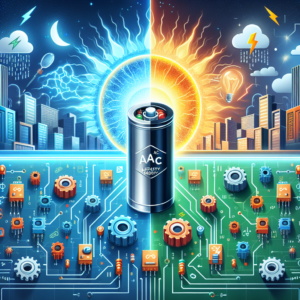How Long Do AC Capacitors Last? Understanding Their Lifespan and Maintenance Tips
Air conditioning systems are essential for maintaining comfort in our homes, especially during the sweltering months of summer. One crucial component of these systems is the AC capacitor, which plays a vital role in starting the compressor and ensuring that the unit runs efficiently. However, like all components, capacitors have a lifespan and can fail over time. In this article, we’ll explore how long AC capacitors typically last, the factors that impact their lifespan, and some maintenance tips to extend their longevity.
Understanding AC Capacitors
AC capacitors are electrical components that store and release energy as needed to start and run the compressor and fan motors in an air conditioning unit. There are two main types of capacitors in AC units: starting capacitors and run capacitors.
- Starting Capacitors: These provide a boost of energy to help start the compressor.
- Run Capacitors: These help keep the motor running efficiently throughout its operational cycle.
How Long Do AC Capacitors Last?
On average, AC capacitors have a lifespan ranging from 5 to 10 years. However, several factors can influence this:
1. Quality of the Capacitor
Not all capacitors are created equal. Higher quality capacitors may last longer than cheaper options. Brands and manufacturers that adhere to strict quality control processes typically produce more reliable capacitors.
2. Operating Conditions
Extreme temperatures, high humidity, and environmental factors can all impact the longevity of an AC capacitor. Capacitors can be impacted by heat, which can cause the dielectric material within to deteriorate more quickly.
3. Usage Patterns
If your air conditioning system is used heavily, particularly in regions with prolonged heatwaves, the capacitors may wear out faster. Frequent cycling on and off can also put additional stress on the capacitor.
4. Electrical Issues
Fluctuations in voltage, improper wiring, or excessive noise on the electrical lines can result in premature capacitor failure. Using a voltage stabilizer can help protect the unit from spikes and dips.
Signs of Capacitor Failure
Understanding the signs of a failing capacitor can help you catch issues before they lead to more significant problems. Here are some common warning signs:
- Humming Sounds: A capacitor that is struggling may emit a constant humming noise.
- Air Conditioner Not Starting: If the unit refuses to turn on or struggles to start, it could be an issue with the capacitor.
- Unusual Cycling: If your air conditioning unit turns on and off frequently, it might be a sign of a failing run capacitor.
- Burning Smell: A burnt odor could indicate that the capacitor has overheated and requires immediate attention.
Maintenance Tips to Extend Capacitor Lifespan
Taking proactive steps in maintaining your AC unit can significantly prolong the life of its capacitors. Here are some valuable maintenance tips:
1. Regular Inspections
Schedule regular HVAC inspections at least once a year. A professional technician can check the condition of the capacitors and replace them if needed before they fail.
2. Keep the Area Clean
Ensure that the outside unit is free from debris, dirt, and vegetation. A clean environment helps the system function optimally, reducing stress on the capacitors.
3. Monitor Electrical Health
Consider investing in a surge protector for your AC unit. This can help guard against voltage spikes that could damage the capacitor and other components.
4. Ensure Proper Ventilation
Make sure that all vents and ducts are unblocked and well-maintained to maintain airflow efficiency. Poor airflow can lead to overheating and potentially damage the capacitors.
5. Stay Alert for Changes
Pay attention to how your AC unit operates. If you notice any unusual sounds or efficiency issues, consult a professional immediately.
Conclusion
Understanding how long AC capacitors last and what factors can impact their lifespan is vital for every homeowner. With an average lifespan of 5 to 10 years, regular maintenance and vigilance can significantly improve their longevity and efficiency. By adhering to proper maintenance tips and being aware of the signs of capacitor failure, you can ensure that your air conditioning system runs smoothly for years to come. If you suspect any issues with your capacitors, don’t hesitate to seek professional help to avoid larger, more costly problems down the road.

